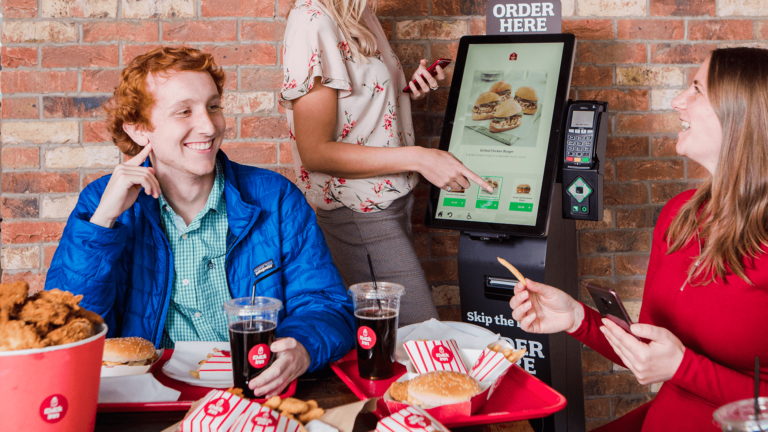QikServe report 76% increase in transaction volume during COVID-19
As the UK hospitality sector gears up to open its doors from the 4th July (which many are calling “The hospitality industry’s Independence Day”), we take a look at how GCV portfolio company and guest self service platform QikServe has adapted its core product to the changing market needs.
Whilst almost every sector has been hit hard by the effects of COVID-19, the hospitality industry has undoubtedly had it’s fair share of challenges since it’s doors were slammed shut on the 20th March.
Many fast food and takeaway establishments were quick to implement safety measures for both employees and consumers, enabling them to remain to some degree operational whilst adhering to government guidelines. However for both larger independent and franchised restaurants, remaining operational was not viable.
A Strong Start to 2020
At the beginning of 2020, QikServe was making significant and sustained growth having processed 250,000 hospitality transactions on behalf of over 600 restaurants by December 2019. Monthly transaction volume was expected to grow steadily as new sites continued to be added from both new and existing customer contracts. In December 2019, QikServe also finalised the friendly acquisition of Preoday, developer of the leading Mobile Order and Pay Ahead solution.

With a positive outlook and strategic roadmap in place for 2020, QikServe could not have predicted just how complex but rewarding the change in direction would be.
In April 2020, UK hospitality quarterly sales fell by 21.3% due to the impact of closures imposed by the COVID-19 lockdown. But, even before the turbulent period brought on during the first half of 2020 by the global coronavirus pandemic, operators and brands were challenged by consumer trends towards staying home, eating in and streaming leisure and entertainment services.
Addressing the Changing Market Needs
QikServe was fast to react to the urgency for operators to find solutions to trade under social distancing restrictions, minimise cash handling and address consumer safety concerns. As a result, businesses began taking stock of the need for QikServe´s solutions with their inherent social distancing elements. By April, incoming customers were beginning to include larger chains such as TGI Fridays and Tesco´s Eastern Europe.

In addition to this, by June QikServe, had teamed up with Britain’s biggest motorway service operator, Moto, to launch a click and collect ordering service at 48 of it’s sites around the UK.
Working with Eagle Eye Solutions, QikServe also undertook research responding to the crisis and readying the sector for recovery.
The research revealed the industry had also shown tremendous resilience: embracing online ordering, delivery and gift services; supporting local community, charitable and NHS efforts; and, keeping customers regularly informed. Findings from the survey also confirmed that people were keen to go back to their favourite bars, pubs, cafés and restaurants. However, while they were ready and willing to eat out, the caveat is that brands must prioritise their safety.
A Digital Future for the Hospitality Sector
Dan Rogers, President and Founder of QikServe said: “Customers will want to browse digital menus, and order and pay at table using their own phone to safely minimise interaction with servers and handling of payment devices. These tools can also extend any digital connection made online during lockdown into venues, to drive footfall and frequency. This is also how QikServe and Eagle Eye can support efforts to reopen for recovery.”
Across the board, QikServe have provided a range of solutions for the hospitality sector since the beginning of the pandemic from drive thru’s to at the counter solutions.
Long term, COVID-19 is expected to change the way businesses operate, which as a result is now predicting continued rapid growth within the market.
If the past five months have been anything to go by with QikServe’s ability to react to the change in customer demand, at GCV we are excited to see what the rest of 2020 has in store for this high growth and innovative portfolio company.
%20(3)%20(2).jpg)




